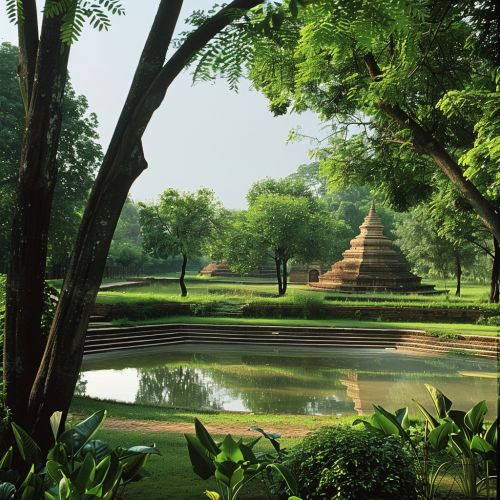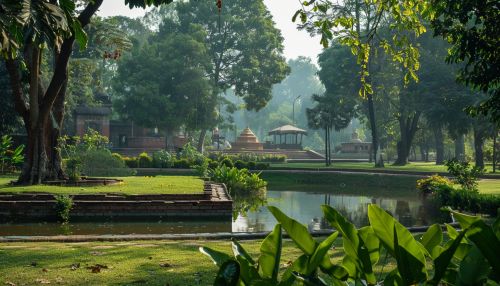Buddha
Early Life and Birth
Gautama Buddha, also known as Siddhārtha Gautama, was born in Lumbini, present-day Nepal, around the 5th to 4th century BCE. His father, Śuddhodana, was a chief of the Shakya clan, while his mother, Queen Māyā, died shortly after his birth. Raised by his aunt, Maha Pajapati Gotami, Siddhārtha lived a sheltered life of luxury.


Renunciation and Ascetic Life
At the age of 29, Siddhārtha left his palace to meet his subjects. He was deeply moved by the suffering he saw, and decided to leave his royal life behind, embarking on a spiritual quest to understand the nature of suffering and how to overcome it. This period of his life is known as the Great Renunciation.
Enlightenment
Siddhārtha pursued the path of asceticism for six years, but found it did not lead to the understanding he sought. He then turned to a path of moderation, or the Middle Way, and meditated under a Bodhi tree. After 49 days, he attained Enlightenment, becoming the Buddha, or "Awakened One".
Teachings and Philosophy
Buddha's teachings, known as Dharma, are encapsulated in the Four Noble Truths and the Eightfold Path. The Four Noble Truths provide a conceptual framework for understanding the nature of suffering and its cessation, while the Eightfold Path provides practical guidelines for ethical conduct, mental discipline, and wisdom.
Death and Legacy
Buddha died around the age of 80, entering a state known as Parinirvana, or final Nirvana. His teachings spread across Asia, leading to the establishment of various Buddhist schools and traditions, profoundly influencing spiritual and philosophical thought worldwide.
